
“Yet was he modest, never obtrusive, charitable, ‘without guile,’…a man whom none could approach without respect, or know without esteem. And though he fell under the spears of the savages, and his body glutted the prairie wolf, and none can tell where his bones are bleaching, he must not be forgotten.”
Prelude
The anonymous eulogy to Jedediah Smith was published in Illinois Monthly Magazine in June 1832. The author’s view of Jed Smith’s character and motives differs from the views of Maurice S. Sullivan and Dale L. Morgan, the scholars who have worked most fully on his life. I see Smith as a man torn by conflicting allegiances—the values of his church and his society, and the values he learned and lived by in the wilderness. The evidence of his letters to his family seems to be that he judged his life as a mountain man to be wicked; that conviction seems to have been deep and sincere. He seems to have damned himself for his love of wildness in the same way that settlers would later damn most mountain men for it. So he went home in an attempt to live by his beliefs he professed.
Smith says nothing about his decision to return to the mountains in 1831. Though it was only a partial turning back to his former way of life, I think it expressed a strong-felt need, a need he probably chastised himself for. So what is remarkable here, to me, is the conflict between professed values and the values he actually lived by. When his anonymous eulogist said that Smith made his altar the mountaintop, he meant that as a tribute to Smith’s ability to live in Christian faith in the mountains. The irony may be that Smith made the mountaintop his altar in a different sense—then he replaced, symbolically, the altar of the Christian Church with his mountaintop as an object of worship.
This story is from the December 2019 edition of True West.
Start your 7-day Magzter GOLD free trial to access thousands of curated premium stories, and 9,000+ magazines and newspapers.
Already a subscriber ? Sign In
This story is from the December 2019 edition of True West.
Start your 7-day Magzter GOLD free trial to access thousands of curated premium stories, and 9,000+ magazines and newspapers.
Already a subscriber? Sign In
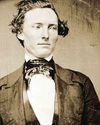
FIREARMS COLT WALKER 47
THE LEGENDARY HANDGUN THAT REALLY WON THE WEST
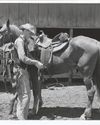
HERITAGE TRAVE
THE AMERICAN WEST IN ALL ITS GLORY OUR ANNUAL FAVORITES LIST CELEBRATES DESTINATIONS ACROSS THE WESTERN UNITED STATES.
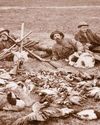
Wild Turkey, and Not the Drinkin' Kind
The actual bird was a favorite of pioneers.
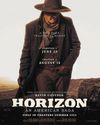
THE PASSION PROJECTS OF THE MODERN WESTERN
A YEAR OF UNDERRATED EXCELLENCE
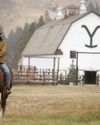
WESTERN BOOKS THEN AND NOW
THE STATE OF WESTERN HISTORY AND FICTION PUBLISHING IN 2024 IS ONE OF GRIT AND DETERMINATION.
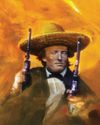
SAMUEL WALKER VALIANT WARRIOR
While a prisoner at the castle of Perote, Walker was put to work raising a flagpole. At the bottom of the hole, Walker placed a Yankee dime, vowing to someday come back and retrieve it, at the same time exacting revenge on his Mexican captors. In the summer of 1847, when Walker's mounted riflemen returned and routed Santa Anna's guerillas, the young captain kept his promise and got his dime back.
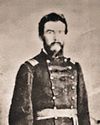
THE BATTLE OF CENTRALIA
ON September 27, 1864, Bloody Bill Anderson and about 80 men took over the small railroad village of Centralia, looting stores and discovering a barrel of whiskey that they hauled out into the street. Wild enough when sober, they soon were roaring drunk.
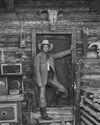
THE MAN WHO SHOOTS THE WEST
Jay Dusard is a living American photographer who has made Arizona his home for over 60 years, seeing it first in 1960 on a visit, moving here for good in 1963.
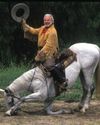
A TRUE WESTERNER INDEED PHIL SPANGENBERGER 1940-2024
Spangenberger had Nevada trained to bow by the legendary horse trainer, Glenn Randall, who trained Roy Rogers' Trigger, Gene Autry's Champion, Rex Allen's Koko and the Ben Hur chariot horses, among other great equines.

Where Did the Loot Go? - This is one of those find the money stories. And it's one that has attracted treasure hunters for more than 150 years.
Whatever happened to the $97,000 from the Reno Gang's last heist? Up to a dozen members of the Reno Gang stopped a Jeffersonville, Madison and Indianapolis train at a watering station in southern Indiana. The outlaws had prior intelligence about its main load: express car safes held about $97,000 in government bonds and notes. In the process of the job, one of the crew was killed and two others hurt. The gang made a clean getaway with the loot.